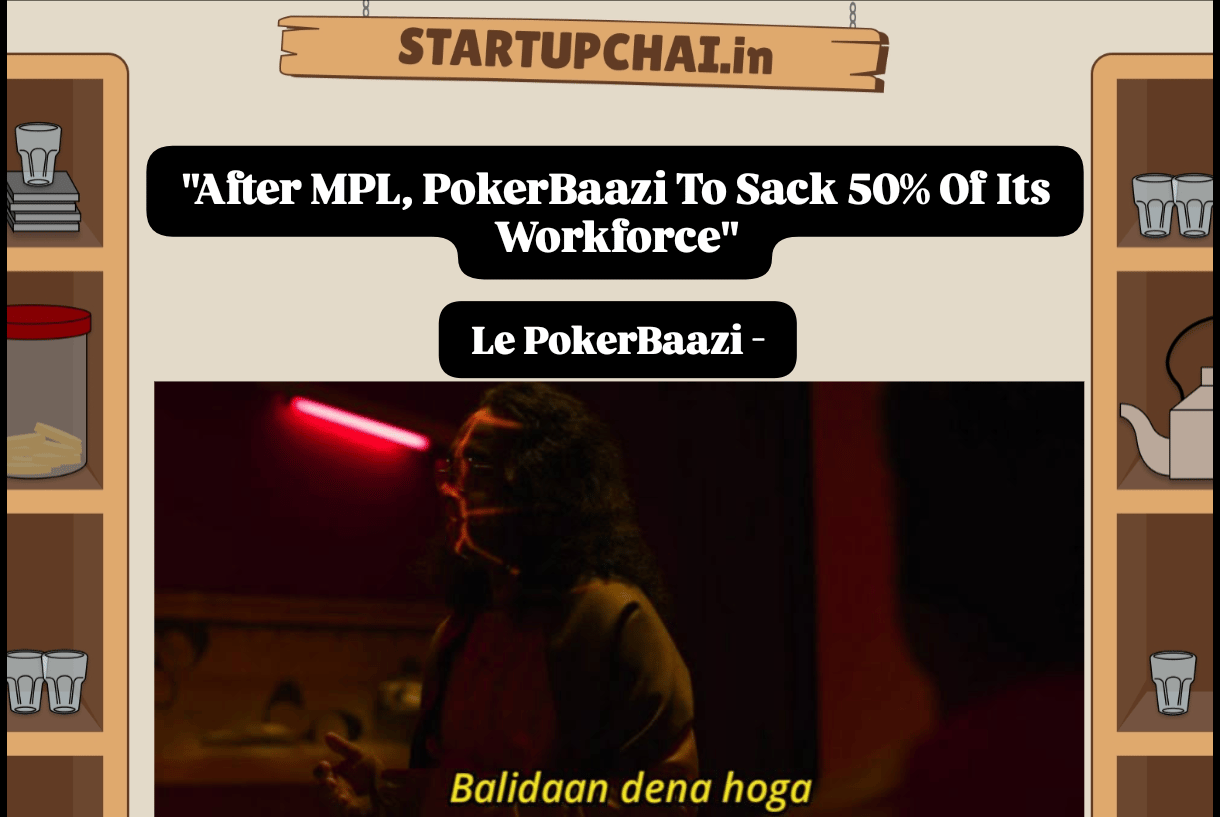- Startup Chai
- Posts
- The Great Biryani Showdown, PokerBaazi To Sack Employees and Byju Raveendran’s Sorrows
The Great Biryani Showdown, PokerBaazi To Sack Employees and Byju Raveendran’s Sorrows
Plus KRAFTON To Invest $50 Mn, and fundraising news about QNu Labs

Biryani may be India’s most-ordered dish on Swiggy year after year, but the battle to dominate this category has turned into one of the most fascinating food-tech rivalries. The so-called “Biryani War” today has three clear generals on the field: Biryani Blues, Biryani By Kilo (BBK), and Behrouz Biryani. Each has taken a radically different route, and their trajectories reveal a lot about how India’s F&B ecosystem treats growth, capital, and customer loyalty.
Biryani Blues plays the disciplined soldier. Founded in 2013, it took the omni-channel QSR route: 68 outlets across North India and Bengaluru, backed by a central kitchen hub-and-spoke model for consistency. With $15 million in funding, it reached ₹85 crore (~$10 million) revenue in FY25 and posted EBITDA profitability. Its founders make no bones about the difficulty of scaling from 10 to 100 stores, but their strategy is “slow and steady,” with a focus on unit economics rather than blitzkrieg expansion. That cautious approach has won them credibility as perhaps the only “profitable biryani brand” in a market filled with high-burn players.
Biryani By Kilo tried to be the flamboyant general. Founded in 2015, it positioned itself as premium, artisanal, and theatrical: every order cooked fresh in a clay handi, delivered with a tiny angeethi to keep it warm. It raised over $65 million, scaled to 100+ outlets across 45 cities, and claimed a valuation near ₹890 crore (~$100 million). But the high-touch model couldn’t match its promise with consistency. Delivery times stretched to an hour, reviews swung between glowing and scathing, and operational lapses piled up. The result: losses of ₹71 crore in FY24, before majority acquisition by Devyani International in 2025. The deal gives BBK access to KFC’s franchise infrastructure, but it’s also an admission that the model couldn’t sustain itself independently.
Behrouz Biryani, meanwhile, is Rebel Foods’ imperial campaign. Launched in 2016 under the world’s largest cloud kitchen operator, it doesn’t sell just rice and meat - it sells a myth, with elaborate Persian backstories, 23 masalas, and a fictional royal lineage. With 450+ cloud kitchens across 75+ cities, Behrouz is backed by $770 million raised by Rebel. While separate financials for Behrouz are not available, but parent Rebel’s revenue surged from Rs 1,195 crore to Rs 1,420 crore in FY24 and losses narrowed to ₹378 crore. Yet, scale has come at a cost: customer ratings hover below two stars, with complaints about “all variants tasting the same,” packaging issues, and poor service. Rebel’s model is optimized for efficiency and AI-driven logistics, but brand dilution and flavor monotony plague its kitchen empire.
What’s striking is how each player embodies a trade-off. Biryani Blues is small but profitable; BBK is premium but inconsistent; Behrouz is massive but diluted. Customer perception aligns neatly with these strategies: Blues struggles with portion value but delivers reliability; BBK dazzles with the handi experience but disappoints on execution; Behrouz markets Persian royalty but often serves mediocrity.
The broader lesson of the Biryani War is about India’s food-tech sector itself. Capital intensity and scale don’t automatically guarantee dominance - quality and consistency remain unforgiving gatekeepers. BBK’s acquisition signals that consolidation is the likely future for ambitious but loss-making biryani brands. Behrouz may continue its global march under Rebel, but unless it fixes quality, its mythical narrative risks collapse. And Blues, while not glamorous, may well outlast its better-funded peers by doing the hardest thing in Indian F&B: making money without burning it.
In the end, the question “Who’s leading the front?” depends on how you define victory. By revenue and reach, Behrouz leads. By funding fireworks, BBK once dazzled. But by the metrics that matter - profitability - Biryani Blues quietly holds the high ground.
Let’s go through what else is happening in Indian startup world - Grab your simmering cup of StartupChai.in and unwind with our hand-brewed memes.

“Sab Boriya Bistar Baandh Lo”: After MPL, PokerBaazi To Sack 50% Of Its Workforce
First MPL, now PokerBaazi, India’s real-money gaming (RMG) sector is taking hit after hit. The poker platform’s parent, Moonshine Technology, has reportedly laid off up to half its workforce, with around 200 employees already impacted.
The sweeping cuts come in the wake of the recent RMG ban, which has left gaming startups scrambling to survive.
Read more here

“Ye Dukh Khatam Kahe Nahi Hota”: QIA Gets Interim Injunction Against Byju Raveendran in $235 Mn Arbitral Award Case
Another legal setback for Byju Raveendran this time, courtesy of Qatar Investment Authority (QIA).
The Karnataka High Court has barred him from selling or transferring assets tied to a $235 Mn arbitral award case. For BYJU’S, already tangled in lawsuits worldwide, this injunction only deepens its mounting troubles.
Read more here


“It’s About Drive, It’s About Power”: PUBG Owner KRAFTON To Invest $50 Mn Annually In India
KRAFTON, the maker of PUBG, is doubling down on India with a $50 Mn annual investment plan. The gaming giant aims to scale operations, explore acquisitions, and even drop “another hit” game soon.
With India already in its top five global markets, KRAFTON clearly isn’t folding its cards here.
Read more here

HDFC Bank has invested undisclosed amount in quantum-safe cybersecurity startup QNu Labs to boost India’s digital sovereignty through indigenous innovation. The move underscores the bank’s push towards future-ready security solutions for the financial sector.
Read more here
How did today's serving of StartupChai fare on your taste buds? |